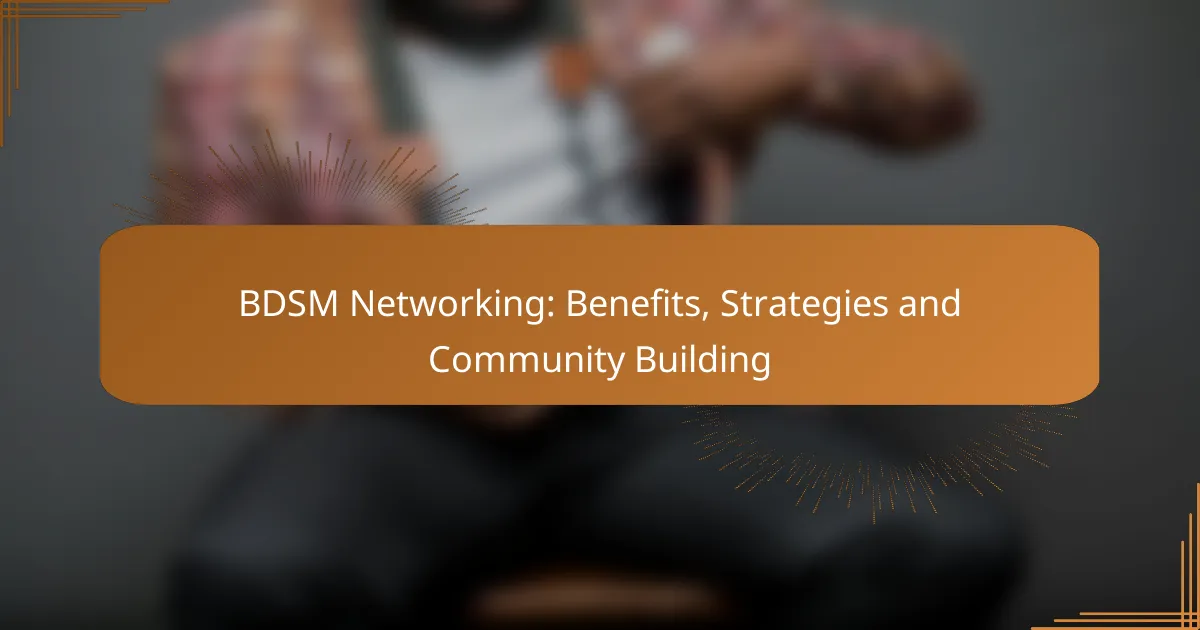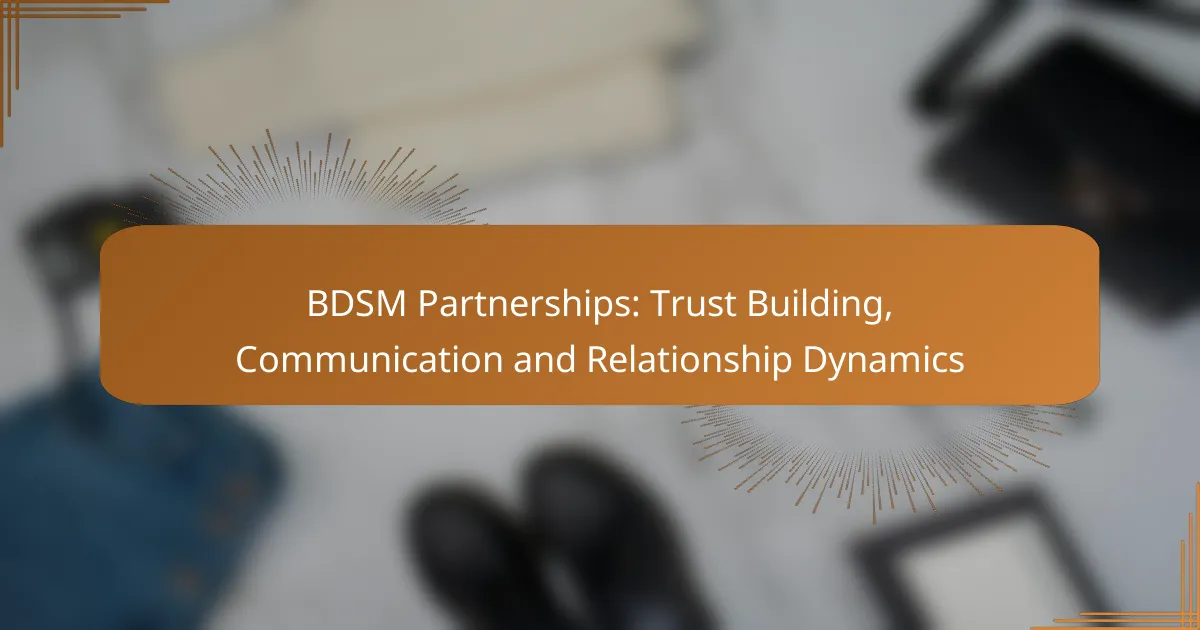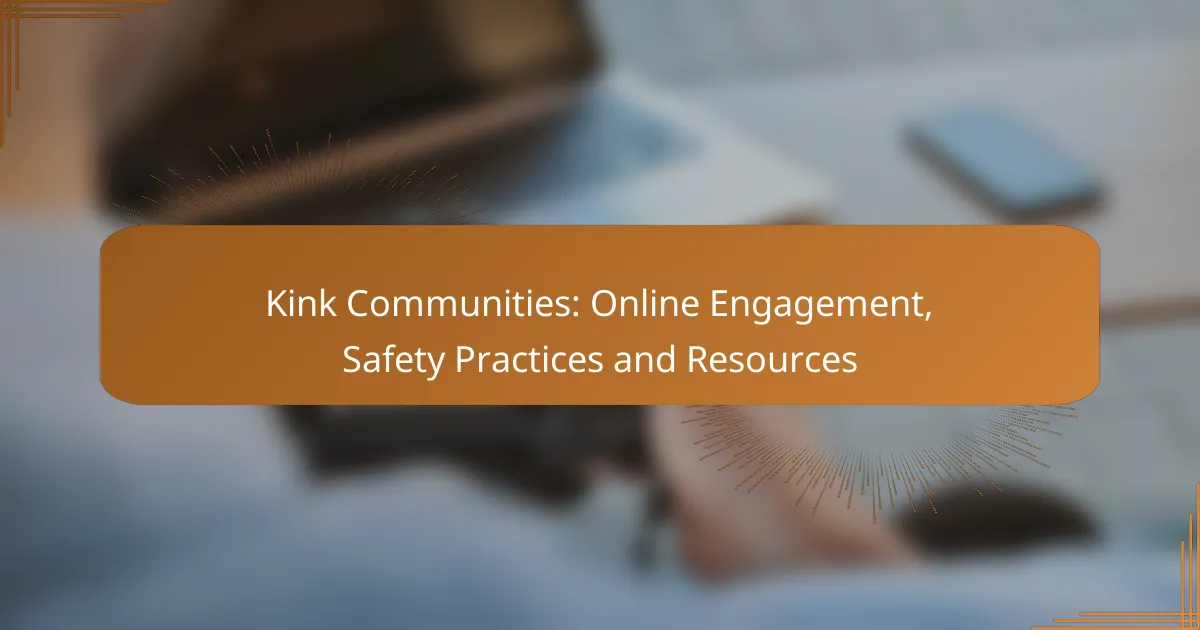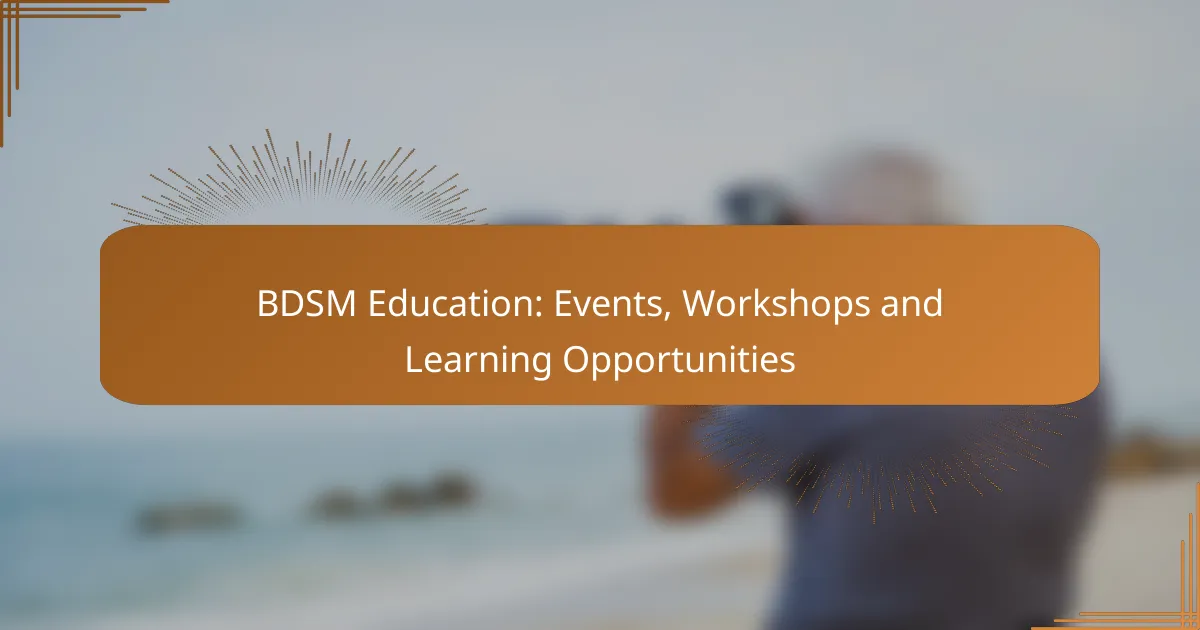[censured] networking plays a crucial role in building a supportive community by connecting individuals with shared interests and experiences. By leveraging various platforms and engaging in local events, members can enhance their emotional safety and access valuable resources while fostering meaningful relationships within the community.
![How can [censured] networking enhance community engagement?](/wp-content/uploads/how-can-[censured]-networking-enhance-community-engagement-1.webp)
How can [censured] networking enhance community engagement?
[censured] networking can significantly enhance community engagement by fostering connections among individuals with shared interests and experiences. This engagement leads to a more supportive environment where members can share knowledge, resources, and emotional support.
Increased support and understanding
Networking within the [censured] community creates a foundation for increased support and understanding among its members. Individuals can share their experiences, challenges, and successes, which helps to normalize various practices and reduce stigma.
Support groups or online forums can provide safe spaces for discussing personal boundaries, consent, and safety practices. This collective understanding can lead to stronger relationships and a more cohesive community.
Opportunities for collaboration
[censured] networking opens up numerous opportunities for collaboration on events, workshops, and educational initiatives. By working together, community members can pool their resources and expertise to create more impactful experiences.
For example, local groups might collaborate to host workshops on safety protocols or consent education, benefiting the entire community. These collaborations can also lead to the establishment of mentorship programs, where experienced practitioners guide newcomers.
Access to diverse experiences
Engaging with a broad network within the [censured] community provides access to a variety of experiences and perspectives. This diversity enriches individual understanding and can introduce members to new practices and ideas they may not have encountered otherwise.
Participating in different events, such as munches or play parties, allows individuals to learn from others’ experiences and broaden their own practices. This exposure can enhance personal growth and foster a more inclusive community atmosphere.
![What strategies can improve [censured] networking?](/wp-content/uploads/what-strategies-can-improve-[censured]-networking-2.webp)
What strategies can improve [censured] networking?
Improving [censured] networking involves leveraging various platforms and community activities to connect with like-minded individuals. Effective strategies include utilizing social media, participating in local events, and creating online forums to foster communication and collaboration.
Utilizing social media platforms
Social media platforms are powerful tools for [censured] networking, allowing individuals to connect, share experiences, and find communities. Popular platforms like Twitter, FetLife, and Instagram can be used to follow relevant hashtags, join groups, and engage with content that resonates with your interests.
When using social media, be mindful of privacy settings and the information you share. Consider creating separate accounts for your [censured] interests to maintain discretion. Regularly engage with posts and contribute to discussions to build your presence in the community.
Participating in local events
Local events such as munches, workshops, and play parties provide excellent opportunities for [censured] networking. These gatherings allow individuals to meet face-to-face, share knowledge, and establish connections in a safe environment. Look for events in your area through community boards or online platforms.
When attending events, approach them with an open mind and a willingness to learn. Bring business cards or contact information to facilitate future connections. Respect the boundaries and consent of others, as this fosters a positive atmosphere for everyone involved.
Creating online forums
Creating online forums can significantly enhance [censured] networking by providing a dedicated space for discussion and resource sharing. Consider starting a forum on platforms like Discord or Reddit, where members can ask questions, share experiences, and offer support.
To ensure the forum remains active, establish clear guidelines and encourage participation through regular topics or challenges. Promote the forum through social media and local events to attract new members and maintain a vibrant community.
![What are the benefits of joining [censured] communities?](/wp-content/uploads/what-are-the-benefits-of-joining-[censured]-communities-3.webp)
What are the benefits of joining [censured] communities?
Joining [censured] communities offers numerous benefits, including enhanced emotional safety, access to educational resources, and opportunities for networking. These communities provide a supportive environment where individuals can explore their interests and connect with like-minded people.
Emotional safety and trust
Emotional safety is a cornerstone of [censured] communities, allowing members to express their desires and boundaries without fear of judgment. Trust is built through shared experiences and open communication, fostering deeper connections among participants.
To ensure emotional safety, it’s essential to engage with community members who prioritize consent and respect. Look for groups that emphasize clear communication and have established guidelines for interactions, which can help mitigate risks and enhance trust.
Educational resources and workshops
[censured] communities often provide a wealth of educational resources, including workshops, seminars, and online forums. These resources cover various topics, from safety practices to techniques, helping individuals enhance their skills and knowledge.
Participating in workshops can be particularly beneficial, as they offer hands-on experience and expert guidance. Many communities also host events where members can learn from each other, share tips, and discuss best practices, making education a collaborative effort.
![How to choose the right [censured] community?](/wp-content/uploads/how-to-choose-the-right-[censured]-community-4.webp)
How to choose the right [censured] community?
Choosing the right [censured] community involves understanding your personal values, interests, and the dynamics of the group. Look for communities that align with your preferences and provide a safe, respectful environment for exploration.
Assessing community values
Community values are foundational to a positive [censured] experience. Consider what principles are emphasized, such as consent, safety, and inclusivity. Research the community’s mission statement or guidelines to ensure they resonate with your own beliefs.
Engagement with community values can often be gauged through discussions, events, and member interactions. Look for groups that prioritize education and promote healthy practices, as these are indicators of a supportive environment.
Evaluating member engagement
Active member engagement is crucial for a vibrant [censured] community. Observe how often members participate in discussions, events, and workshops. A community with regular activities and open communication channels tends to foster stronger connections among its members.
Consider reaching out to current members to ask about their experiences. Engaged members are usually willing to share insights about the community culture and can provide valuable information about the level of support and camaraderie you can expect.
![What are the common misconceptions about [censured] networking?](/wp-content/uploads/what-are-the-common-misconceptions-about-[censured]-networking-5.webp)
What are the common misconceptions about [censured] networking?
Common misconceptions about [censured] networking often stem from stereotypes and a lack of understanding. Many people believe that [censured] is inherently dangerous or that consent is not prioritized, which can create barriers to community engagement.
Assumptions about safety
One major misconception is that [censured] networking is unsafe. While there are risks involved, many practitioners prioritize safety through established protocols and practices. Engaging in safe networking means understanding the importance of safe words, risk awareness, and aftercare.
To enhance safety, consider joining established groups that emphasize safety protocols. Look for communities that provide resources on safe practices, such as workshops or educational materials. This can help mitigate risks and foster a supportive environment.
Misunderstanding consent
Another common misunderstanding is that consent is often overlooked in [censured] relationships. In reality, informed consent is a foundational principle in the [censured] community. Participants are encouraged to communicate openly about their boundaries and desires before engaging in any activities.
To ensure clear consent, utilize tools like negotiation checklists or pre-scene discussions. This helps clarify limits and expectations, reducing the likelihood of misunderstandings. Remember that consent can be revoked at any time, and ongoing communication is crucial for a healthy dynamic.
![How can technology facilitate [censured] networking?](/wp-content/uploads/how-can-technology-facilitate-[censured]-networking-6.webp)
How can technology facilitate [censured] networking?
Technology enhances [censured] networking by providing platforms for individuals to connect, share experiences, and build communities. Through various apps and online events, people can find local groups and engage with like-minded individuals, fostering a sense of belonging and support.
Apps for connecting with local groups
Several apps are designed specifically for [censured] enthusiasts to connect with local communities. Popular options include FetLife, Whiplr, and [censured].com, which allow users to create profiles, share interests, and find events nearby. These platforms often feature discussion forums and event listings, making it easier to engage with others.
When using these apps, consider privacy settings and the information you share. Always verify the credibility of users and groups before meeting in person. Look for local meetups or munches listed in the app to start building connections safely.
Virtual events and meetups
Virtual events and meetups have become increasingly popular in the [censured] community, especially during times when in-person gatherings are limited. Platforms like Zoom or Discord host workshops, discussions, and social gatherings, allowing participants to interact from the comfort of their homes.
To make the most of these virtual events, prepare by familiarizing yourself with the platform and the event format. Engage actively by asking questions and participating in discussions. Be mindful of time zones when scheduling to ensure maximum participation from diverse locations.
![What role do workshops play in [censured] community building?](/wp-content/uploads/what-role-do-workshops-play-in-[censured]-community-building-7.webp)
What role do workshops play in [censured] community building?
Workshops are essential for fostering connections and enhancing skills within the [censured] community. They provide a structured environment where individuals can learn, practice, and share experiences, ultimately strengthening community ties.
Skill development opportunities
Workshops offer hands-on training in various [censured] techniques, safety practices, and consent education. Participants can expect to learn about [censured], impact play, and negotiation skills, often through practical demonstrations and guided exercises.
Many workshops cater to different skill levels, from beginners to advanced practitioners, ensuring that everyone can find suitable learning opportunities. This approach helps individuals build confidence and competence in their chosen practices.
Networking with experienced practitioners
Attending workshops allows participants to meet seasoned [censured] practitioners, creating valuable networking opportunities. These connections can lead to mentorship, collaboration, and friendships that enhance the overall experience within the community.
Engaging with experienced individuals can provide insights into best practices, local events, and resources that newcomers might not easily access. Building these relationships can significantly enrich one’s journey in [censured], fostering a sense of belonging and support.



